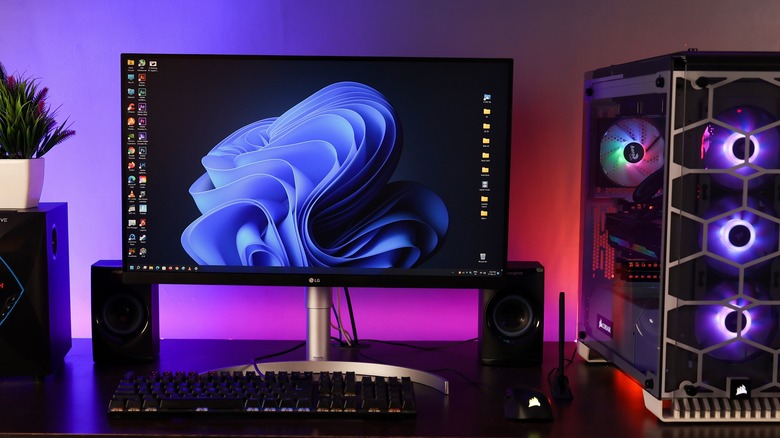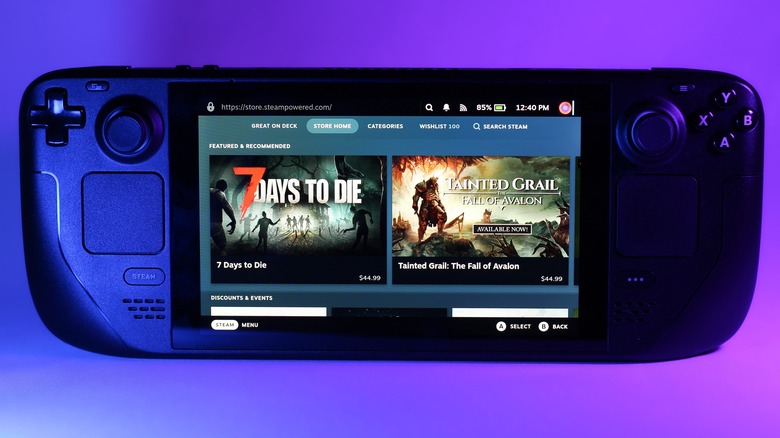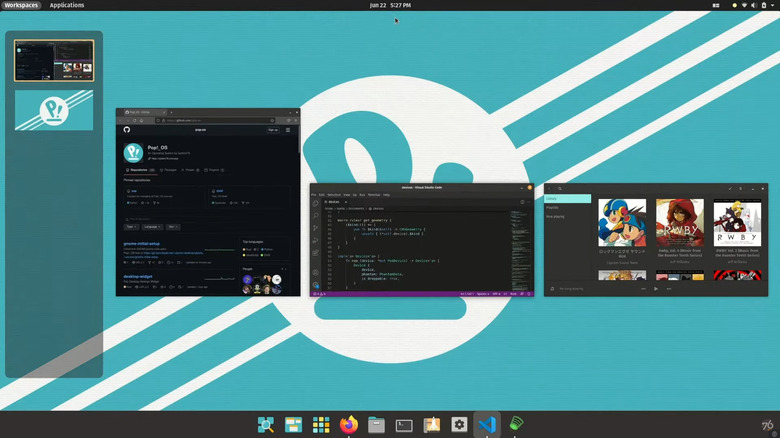Is There A Good Windows 11 Alternative For Gamers?
For as long as PC gaming has existed, it has been more or less synonymous with Windows. Due to its chokehold on the market, nearly every title eventually makes its way to Microsoft's operating system (with the exception of notable holdouts like Nintendo). Porting a game to a different OS takes a significant number of resources, so game developers understandably choose to support the platform with the largest user base.
Despite its dominance, Windows 11 has proven especially unpopular, and demand is growing for an alternative. Gamers may tolerate its labyrinthian settings, constant updates, and endless hardware issues, but tolerance is a far cry from enthusiasm. Windows 10 users need to upgrade to Windows 11 before support for the last-generation OS ends later this year, but according to the most recent Steam Hardware Survey, nearly 37% of gamers surveyed haven't done so. In a healthy ecosystem, users would be eager to experience a major platform update. Something has clearly gone awry.
Unfortunately, alternatives are slim. However, those few alternatives are better than ever, which explains the recent surge in OS market share for Linux. As of this writing, the penguin-themed platform is on 5% of PCs, which doesn't sound impressive, but five years ago it wasn't even on 2%. Once an uninhabitable domain for the average user, Linux looks more like a viable avenue for gaming than ever before, even though it still has downsides. So, here are just a few of the options out there for adventurous gamers sick of Windows.
SteamOS has supercharged Arch Linux for gamers
Valve deserves some kudos for the heavy lifting it has done to make Linux the next big thing in gaming. By developing the Linux-based SteamOS to bypass Windows on handhelds, it was able to launch the Steam Deck. In the process, it created tools that allow a large number of PC games to run on many other versions of Linux. One major hurdle to gaming on Linux is that many PC games are written with Microsoft's DirectX API, whereas Linux only supports OpenGL and Vulkan. New games increasingly support those options – "Baldur's Gate 3" will let you choose between DirectX and Vulkan at startup — but a large backlog of games do not.
To circumvent this, Valve developed a compatibility layer called Proton, which has allowed a growing number of Windows-only titles to run on SteamOS. Although you can use Proton on most flavors of Linux, SteamOS is actually based on a Linux distribution called Arch Linux, which has a dedicated gaming community with robust updates and support. Best of all, many games actually perform better on Arch compared to Windows, as confirmed by benchmark comparisons from German outlet Computer Base.
If you're waiting for the gut punch, here it comes. Any game that uses incompatible anti-cheat software – in other words, the majority of online multiplayer games from "Valorant" to "Fortnite" — won't run on Linux. If you don't care about those games and prefer local, single-player titles, Arch Linux could be the answer. But if you play competitive games, you'll need to stick to Windows 11 for the time being.
Pop!_OS and Nobara are also built with gaming in mind
Thanks to Linux's open-source, DIY community, there are too many Linux distributions to cover here, but some are likely excellent for gaming. However, the aforementioned Computer Base testing showed a lot of promise for two others in particular: Pop!_OS and Nobara. In four of five games tested, Windows 11 fell behind all three Linux distros in terms of average framerate. However, Windows 11 did score consistently near the top in terms of 1% lows, which may indicate better overall stability.
Unlike the one-size-fits-all approach of Windows, Linux variants tend to have unique strengths. Pop!_OS is based on Ubuntu, one of the most well-established versions of Linux, so it inherits that platforms stability and support while adding gaming-focused perks like improvement to window management and a slew of GPU focused features for those with the best NVIDIA graphics cards. Nobara, meanwhile, is a modified version of Fedora that includes gaming features alongside support for creative tools like Blender, Davinci Resolve, and OBS Studio. This may make it a great choice for those who want to livestream or make YouTube videos.
To be clear, Microsoft is still the "1,000-pound gorilla" dominating the computer market it has been since the 1990s, and Linux is unlikely to pose a threat in the short run. However, it should not go unnoticed that a bunch of scrappy Linux developers have achieved better gaming performance than a multi-trillion dollar company like Microsoft which practically owns PC gaming. Windows alternatives for gaming have never been so appealing, with so few downsides and so low a barrier to entry for the average user.


